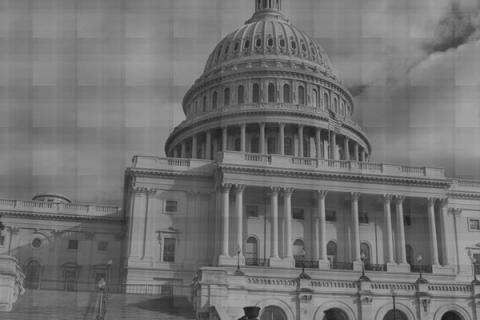In the massive field of proposed remedies for California's fiscal insolvency and politically problematic system, a novel idea has come down the pike from Fresno.
Bill Maze (R-Visalia) has proposed that California be split into two states, one of them containing the 13 counties from Marin to Los Angeles, and the other containing the 45 inland counties. Into Beachland and Califarmia, if you will, though Maze seems to want something more boring along the lines of "Western California."
Because we all know how attractive it is for one state to sound like a knockoff of another.
But Maze isn't just shouting his idea hopelessly from the rooftops.
He is organizing, and from the sound of it, that organization is going relatively successfully. Maze has an actual organization at his back - the "Citizens for Saving California Farming Industries," an organization he formed with "Don Curlee, an agricultural journalist who writes a weekly column for the Times-Delta; Joe L. Neyer III, publisher of California Farm Equipment magazine; and Virgil Rogers, a retired farmer operating a small cattle ranch in Springville," according to the Visalia Times-Delta.
The idea, for all its eccentricity, is certainly intriguing, though not new. A similar effort was put together roughly sixty years ago to join parts of Northern California with Southern Oregon and create the new state of "Jefferson." This effort was defeated when the country hastily abandoned pesky decentralizing ideas like states' rights in the face of World War II. But for all the comparisons of the current President to FDR, this time, there is no World War II.
So does that mean that California will finally cease to exist as a single state?
Not necessarily. There are several obstacles to the idea, one of the largest being popular opinion. According to the Sacramento Bee, a recent Field Poll found that splitting California garnered, at best, a meager 29 percent support, whereas 71 percent disapproved of the idea. The grounds for this skepticism were best summed up by Terry Nguyen of Santa Ana, who simply said, "It's just crazy."
And the perception of the craziness and impracticality of this measure is not the only obstacle to Maze's idea. The Fresno Bee's editorial board has already reacted viciously against the proposal, calling Maze's vision "a waste of time." Their reasoning is that California's problems can be solved more capably by other means, but if one examines Maze's list of grievances, one begins to understand why he could be skeptical of such a claim.
One of these issues, according to the Fresno Bee, is that "San Joaquin Valley farmers and others believe that politicians from the liberal counties have foisted environmental rules and high taxes onto the rest of the state. That has put California into an economic tailspin," at least according to Maze's group.
Holy Proposition 2, Batman! I wonder where he got that idea!
It is possible to argue, as the Bee has done, that Maze and his compatriots are nothing but an assortment of cranks who are overreacting to perceived slights. But that analysis would really be missing the point here. The fact that people from 45 counties (even if they are a minority) could feel victimized by the overzealous good intentions of people from only a third of that number of counties is clearly an indicator that democracy in California is not working. Only 29 percent of the population may be small, but it's a significant enough portion to make the threat of secession worth looking at as a sociological phenomenon.
Maze's idea may be impractical, but it speaks to the resentments of a lot of California's people, who are sick of having their state's political process hijacked by well-heeled urban activism. Still, rather than carving up the state, perhaps Maze's followers ought to reserve their carving knives for someone else.
Image
Image

Category